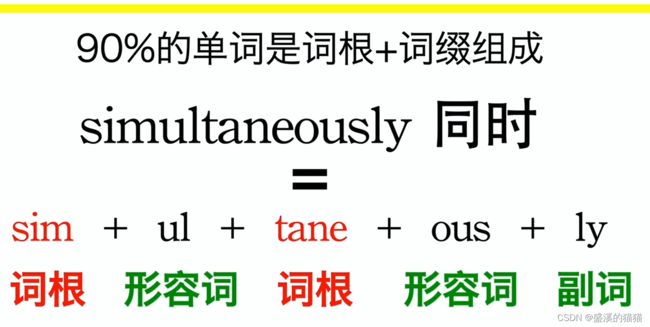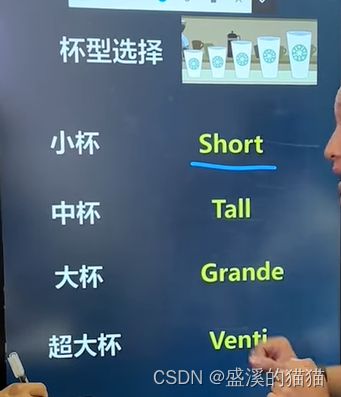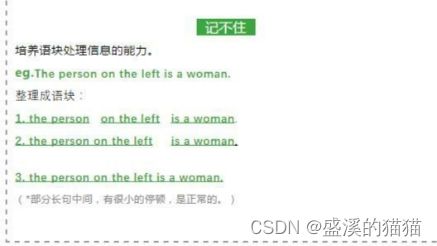听力总结易错点+口语准则
目录
听力总结易错点
where are you come from?其实是错的
杯子的大小表达
口语准则
一些常见蔬菜的英文名称:
To get a lot out of
英语复述句子题
听力总结易错点
1,在section 1 ,很容易把a读成n
2.
silver colored cloth
这个cloth很容易听不出来
where are you come from?其实是错的
居然一个句子有两个be动词,居然一直没有发现
杯子的大小表达
口语准则
【part2回答八大准则】(一)
准则1:考官并不关心考生是否按照顺序回答一道题目中的四个小点,但是我们应该用最简单的方法-----从上到下逐点回答,每个小点单独扩展。
准则2:把每一个小点看作一道part1题目,按照part1扩展方法来回答。
准则3:尽量按照顺序回答四个小点,但如果漏掉一个,或者因为两分钟时间到了而没说道最后一点,并不会扣分。
准则4:不好说的小点尽量少说,好说的小点可以充分扩展。通常,描述一件家具/一棵植物/一座建筑物等的外观较难回答,我们可以少说,花更多时间谈论与这一家具/植物/建筑物等有关的一次经历/故事。
不要直接谈外观,要谈故事
今日课前作业:
题目:do you like eating vegetables ? (来自于part1)长度20s左右
参考:I like eating vegetables, including cabbage, peas, etc, because they are rich in vitamins and minerals, which can help me reduce the risk of developing various diseases, especially heart disease.
解析1:学会添加话题词比如豌豆等增加内容的细节
解析2:学会用元素比如vitamin来表示食物为什么健康而不是笼统的healthy
解析3:运用体系备考(上课会讲这个体系)
I like vegetables, especially cabbage and tomatoes, because they are healthier than instant noodles, and they are easier to cook than meat. I often make tomato and cabbage noodles at home, which is simple and healthy
"I have a fondness for vegetables, particularly cabbage and tomatoes. Their nutritional superiority over instant noodles appeals to me, and their ease of preparation surpasses that of meat dishes. One of my frequent homemade meals includes tomato and cabbage noodles, a simple yet wholesome option."
一些常见蔬菜的英文名称:
- Carrot(胡萝卜)
- Broccoli(西兰花)
- Tomato(番茄)
- Potato(马铃薯)
- Spinach(菠菜)
- Cucumber(黄瓜)
- Lettuce(生菜)
- Bell pepper(甜椒)
- Onion(洋葱)
- Garlic(大蒜)
- Cauliflower(花椰菜)
- Peas(豌豆)
- Corn(玉米)
- Eggplant(茄子)
- Pumpkin(南瓜)
- Zucchini(西葫芦)
- Radish(萝卜)
- Mushroom(蘑菇)
- Asparagus(芦笋)
- Green beans(青豆)
胡萝卜是carrot ,而萝卜居然是radish
方便面用英文可以说为 "Instant noodles"。
"暑假"用英文可以说为 "summer vacation" 或者 "summer break"。
To get a lot out of
"To get a lot out of" is an idiomatic expression that means to gain a significant amount of value, knowledge, benefit, or understanding from a particular experience, activity, situation, or interaction. When someone uses this phrase, they are usually describing how much they have learned, enjoyed, or benefited from a specific event or endeavor.
For example, if someone says, "I attended that workshop and really got a lot out of it," they are indicating that the workshop was valuable and provided them with useful information, insights, or skills. Similarly, if a person mentions, "I've been reading that book, and I'm getting a lot out of it," they mean that the book is proving to be highly informative and beneficial to them.
In essence, "to get a lot out of" implies that the individual has gained substantial value or benefit from the experience, contributing to their personal growth, understanding, or proficiency in a certain subject or area.
I always can get a lot out of knowledge from the lecture.
英语复述句子题
大家有没有遇到过,让你把他讲的话再复述一遍的题目,很是bug
我学到一种方法,就是说,你可以培养自己语块的方法,就是相当于固定搭配一样,
把一些词组很自然地拼接在一起








